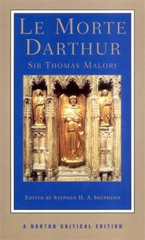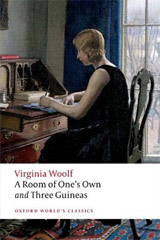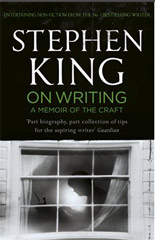Ba Creative Writing Reading List
2013 advance reading for BA English with Creative Writing
Literary Aesthetics after 1800 (semester 1)
The following texts will form the focal point of your studies in the first semester. Please ensure that the correct editions are purchased. While you will examine these texts in depth during your Literary Aesthetics after 1800 module it is a good idea to read them for the first time as soon as possible. In particular, as they will be the first texts that will be covered by the module, we would particularly urge you to read Roy's The God of Small Things and Conrad's Heart of Darkness prior to arriving at the university in September.
-
 Arundhati Roy, The God of Small Things (London: Harper Perennial, 2004)
Arundhati Roy, The God of Small Things (London: Harper Perennial, 2004) - Joseph Conrad, Heart of Darkness and Other Tales, ed. by Cedric Watts (Oxford World's Classics, 2008)
- Robert Browning, Selected Poems, ed. by Daniel Karlin (London: Penguin Classics, 2000)
- Christina Rossetti, Selected Poems, ed. by Alison Chapman (London: Penguin Classics, 2008)
- Virginia Woolf, Mrs Dalloway, ed. by David Bradshaw (Oxford World's Classics, 2008)
- James Joyce, Dubliners, ed. by Jeri Johnson (Oxford World's Classics, 2008)
Literary Aesthetics before 1800 (semester 2)
These are the books with which you'll work in the Semester 2 module, Literary Aesthetics before 1800. If, as we hope is the case, you're keen to get ahead with the reading, then we'd invite you to explore the huge range of material that they offer, perhaps concentrating on the opening and ending of the Malory; on four plays, Dr Faustus, The Spanish Tragedy, The Malcontent and The Changeling from the Renaissance Drama anthology; and on the poetry of Johnson, Pope, Burns and Leapor from Eighteenth-Century Poetry. What matters above all is that you start that exploration, and follow your interests: we'll look forward to sharing ours with you when the module starts.
These, then, are the three books that you'll need to buy for Semester 2:
-
 Stephen H.A. Shepherd, ed., Le Morte Darthur (New York: W.W. Norton, 2004)
Stephen H.A. Shepherd, ed., Le Morte Darthur (New York: W.W. Norton, 2004) - Arthur F. Kinney, ed., Renaissance Drama: An Anthology of Plays and Entertainments, 2nd edn (Oxford: Blackwell, 2005)
- David Fairer and Christine Gerrard, eds, Eighteenth-Century Poetry: An Annotated Anthology, 2nd edn (Oxford: Blackwell, 2004).
Please do email any questions to the module convenor, Dr Tom Lockwood. His email address is: t.e.lockwood@bham.ac.uk.
Critical Practice (semester 1)
In the first semester you will take our 'Critical Practice' module as well as 'Literary Aesthetics after 1800'. Reading material for this module will be provided throughout the semester but there is one text that you should buy in advance. This is:
- Virginia Woolf, A Room of One's Own and Three Guineas, ed. Morag Shiach (Oxford World's Classics, 2008).
 A more extensive list of secondary reading will be made available to you at the beginning of the course and will include print and electronic resources accessible via the University Library. In the meantime, the following critical studies can serve to introduce you to the kinds of literary criticism you will encounter on the module.
A more extensive list of secondary reading will be made available to you at the beginning of the course and will include print and electronic resources accessible via the University Library. In the meantime, the following critical studies can serve to introduce you to the kinds of literary criticism you will encounter on the module.
- Julie Mullaney, Arundhati Roy's 'The God of Small Things' (New York and London: Continuum, 2002).
- Alex Tickell, Arundhati Roy's 'The God of Small Things' (London and New York: Routledge, 2007).
- John G. Peters,The Cambridge Introduction to Joseph Conrad (Cambridge: Cambridge University Press, 2006).
- Richard Cronin, Alison Chapman, and Anthony H. Harrison, eds, A Companion to Victorian Poetry (Oxford: Blackwell, 2007).
- Linda K. Hughes, The Cambridge Introduction to Victorian Poetry (Cambridge: Cambridge University Press, 2010).
- Gillian Beer, Virginia Woolf: The Common Ground (Edinburgh: Edinburgh University Press, 1996).
- Hermione Lee, Virginia Woolf (London: Vintage, 1996).
- Laura Marcus, Virginia Woolf: Writers and their Work (Tavistock: Northcote House Publishers, 1997).
Creative Writing Foundation
Try not to second guess the kinds of writing you will be doing in your first year of study, or to go out of your way to find books on 'how to write'. Just continue with on-going projects, if relevant, or perhaps try your hand at an 'observational' diary – and if you haven't done a lot of writing to date, do not worry, as we shall help you to build skills during the first semester.
 Reading is a key tool for Creative Writers, and there is no substitute for reading broadly across genres and sub-genres. You should choose up-to-date texts that will challenge you to go outside your normal comfort zone. Novels that have been reviewed in major newspapers are usually a good bet, or choose ones that have been short-listed for a literary prize. Do sample some recent poetry collections. (If you opt for poetry anthologies, make sure they include a good selection of contemporary authors.) There are a number of excellent American anthologies of contemporary short stories in print. You will find the texts below helpful in terms of encouraging you to think about the differences between being a writer and a reader – and the importance of being both.
Reading is a key tool for Creative Writers, and there is no substitute for reading broadly across genres and sub-genres. You should choose up-to-date texts that will challenge you to go outside your normal comfort zone. Novels that have been reviewed in major newspapers are usually a good bet, or choose ones that have been short-listed for a literary prize. Do sample some recent poetry collections. (If you opt for poetry anthologies, make sure they include a good selection of contemporary authors.) There are a number of excellent American anthologies of contemporary short stories in print. You will find the texts below helpful in terms of encouraging you to think about the differences between being a writer and a reader – and the importance of being both.
- Ted Hughes, Poetry in the Making (London: Faber and Faber, 2008).
- Stephen King, On Writing (London: Hodder and Stoughton, 2012).
- Ruth Padel, 52 Ways of Looking at a Poem (London: Vintage, 2005).
- James Wood, How Fiction Works (London: Vintage, 2009).
Ba Creative Writing Reading List
Source: https://www.birmingham.ac.uk/schools/edacs/departments/english/news/2013/advance-reading-ba-english-creative-writing-2013.aspx
0 Response to "Ba Creative Writing Reading List"
Post a Comment